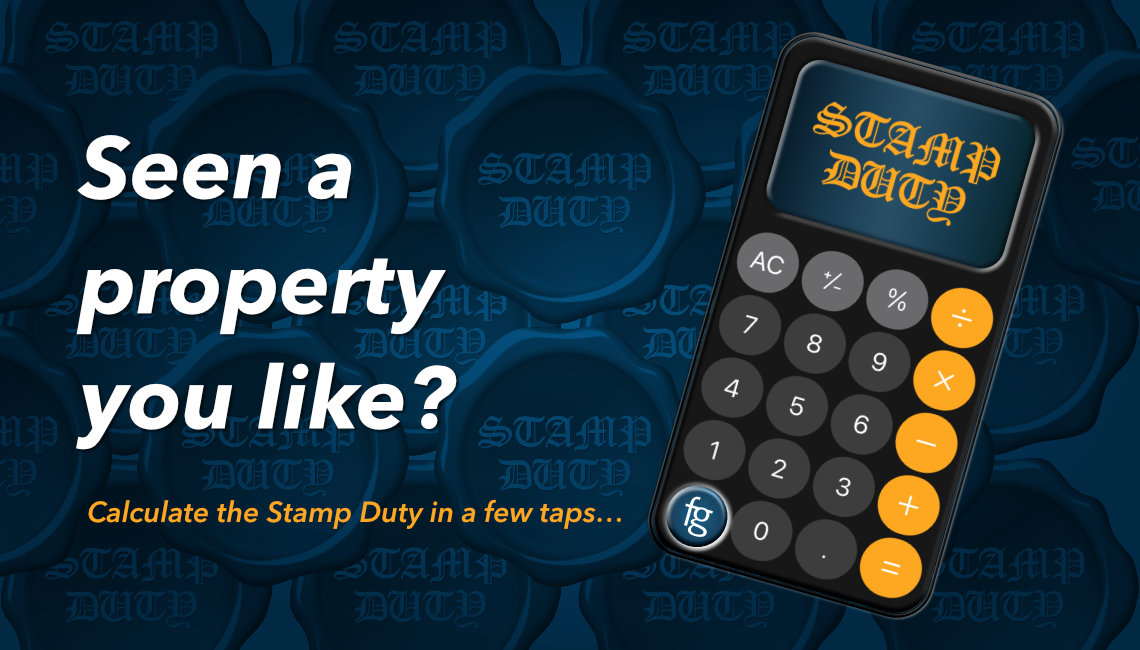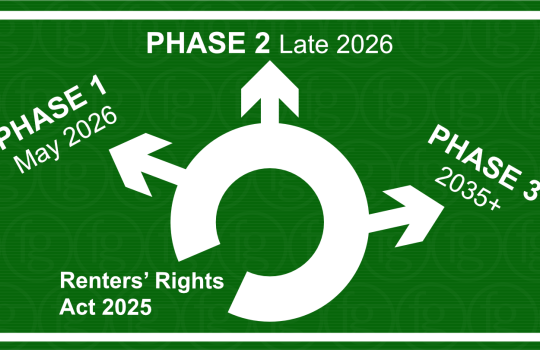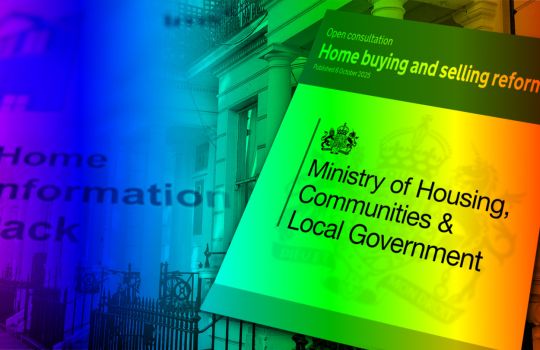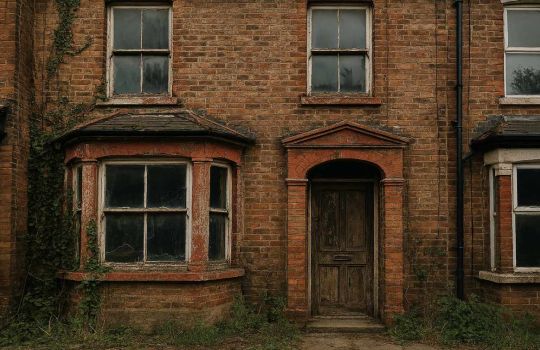Are You Renters' Rights Ready?
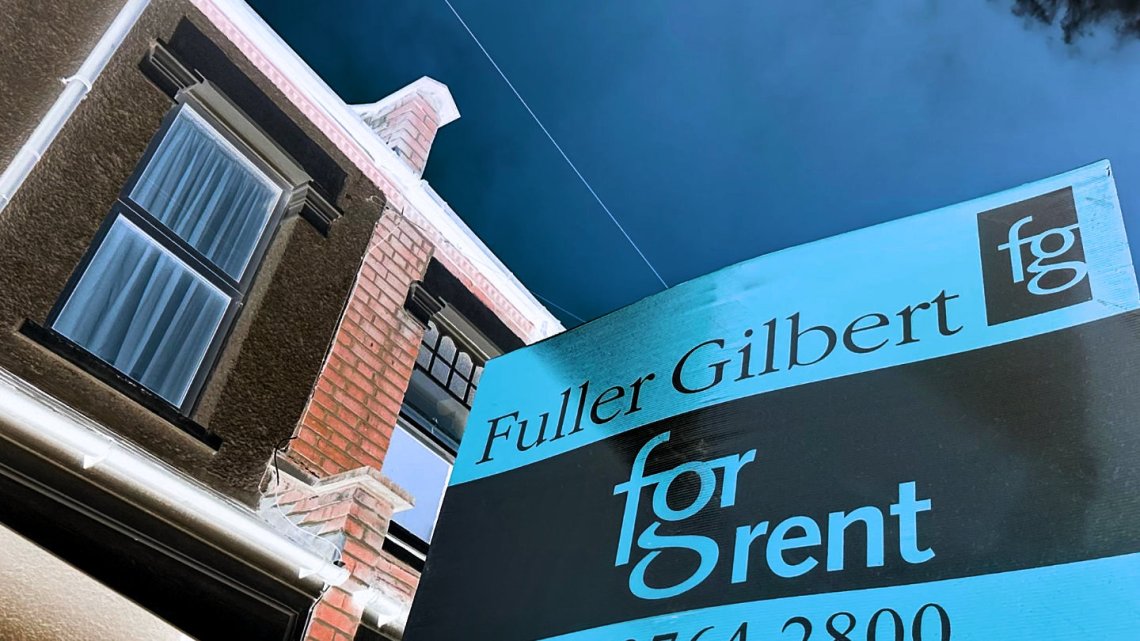
The Renters’ Rights Bill 2025 is set to become law, with Royal Assent expected by late October or early November 2025. This landmark legislation represents the most significant reform of England’s private rented sector in decades, aiming to create a fairer, more secure, and transparent system for both tenants and landlords.
While the Bill will not take effect immediately, phased implementation is expected from Spring 2026, with some measures commencing later into 2026 and 2027. Fuller Gilbert breaks down the main points of this far-reaching, impending legislation…
Key Objectives of the Bill
The Bill seeks to:
• Abolish “no fault” evictions under Section 21
• Improve housing standards across the private sector
• Strengthen tenant rights and protections
• Introduce greater fairness and transparency in the rental market
• Professionalise the sector and reduce rogue landlord practices
Key Provisions of the Bill
Tenancy and Eviction Reforms
• Abolition of Fixed-Term Tenancies: Assured Shorthold Tenancies (ASTs) will be replaced by open-ended periodic tenancies.
• End of Section 21 Evictions: Landlords must use revised Section 8 grounds for possession.
• Updated Possession Grounds:
• Selling the property (with a 12-month protected period)
• Moving in (landlord or close family)
• Persistent rent arrears (now defined as 3+ months unpaid rent)
• Serious anti-social behaviour or breach of tenancy
• Tenant Notice: Tenants can leave with 2 months’ notice at any time.
Rent and Bidding Reforms
• Rent Increase Limits: Rent can only be increased once per year, with 2 months’ notice, using the Section 13 process.
• Ban on Rental Bidding: Landlords and agents must advertise a fixed rent and cannot accept offers above it.
• Advance Rent Cap: Rent in advance will be capped at one month.
• Tribunal Challenges: Tenants can challenge rent hikes at a First Tier Tribunal. Awards cannot exceed the proposed rent or be backdated.
Pets and Tenant Requests
• Tenants have the right to request a pet.
• Landlords must respond within 28 days and cannot unreasonably refuse.
• Pet insurance may be required, but extra pet deposits are banned.
| Feature - scroll to continue with content... |
| continue reading article... |
Property Standards, Enforcement, and Transparency
Decent Homes Standard
• Extended to the private rented sector for the first time.
Requires:
• Freedom from damp and mould
• Safe and effective heating
• General habitability improvements
Awaab’s Law
• Landlords must act promptly to remedy serious hazards, including damp and mould, within statutory timeframes.
National PRS Database
• All landlords must register themselves and their properties.
• Registration is mandatory to use certain possession grounds.
PRS Ombudsman Scheme
• All landlords must join a redress scheme.
• Offers an alternative to court for resolving disputes.
• Non-compliance may block eviction rights.
Discrimination Protections
• Blanket bans on tenants with children or receiving benefits will be prohibited.
Council Enforcement Powers
• Local authorities will be empowered to inspect properties without notice and enforce standards.
Impact on Tenants
Positive Changes
• Greater security of tenure
• More rights and protections
• Improved property standards
• Ban on rental bidding and mid-tenancy rent hikes

The Bill mandates that all private rental properties meet a minimum standard of quality, based on the Decent Homes Standard
Challenges
• Evictions still possible under legitimate grounds
• Transitional uncertainty during implementation
• Potential market responses: reduced supply, increased rents, or more selective landlord practices
Impact on Landlords
Key Changes
• Shift to periodic tenancies
• End of Section 21 evictions
• Regulated rent increases
• Increased compliance and regulatory obligations
Preparation Tips
• Review tenancy agreements and possession strategies
• Ensure properties meet Decent Homes and hazard standards
• Prepare for PRS database registration and Ombudsman membership
• Update insurance policies and budget for repairs
• Monitor implementation timelines and secondary legislation
Timeline and Implementation
• Late October/Early November 2025: Royal Assent anticipated
• Spring 2026: Most provisions (e.g., tenancy reforms, Section 21 abolition) expected to take effect
• Late 2026–2027: Full rollout of PRS Database, Ombudsman, and Decent Homes Standard
Key Things to Watch
• Royal Assent: Marks the Bill becoming law
• Commencement Dates: Likely phased to allow adjustment
• Secondary Legislation: Will define operational details
• Market Responses: Landlord and tenant behaviour may shift
• Enforcement: Success depends on local authority capacity and sector readiness
Related Reads
Jan 2025: https://www.fullergilbert.co.uk/renters-rights-bill-progresses
March 2025: https://www.fullergilbert.co.uk/leasehold-system-reforms-move-a-step-closer
April 2025: https://www.fullergilbert.co.uk/renters-rights-bill-scrutinised
April 2025: https://www.fullergilbert.co.uk/renters-rights-bill-invokes-lively-committee-debate
Click here for the Government's guide to the Renters’ Rights Bill
This article is intended as a general guide for informational purposes and will be updated as further details become available. Always seek professional advice before making any property and/or financial decisions.

